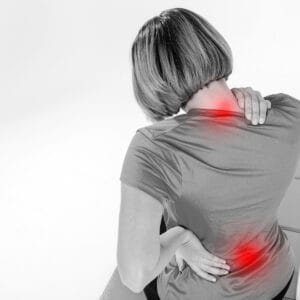The temporomandibular joint is the joint that connects your jaw to your skull. When this joint is injured or damaged, it can lead to a localized pain disorder called temporomandibular joint (TMJ) syndrome or temporomandibular disorder (TMD).
Causes of TMJ disorders include
- Injury to the teeth or jaw
- misalignment of the teeth or jaw
- teeth grinding or clenching
- Poor posture
- Stress
- Arthritis or degenerative changes
- Trauma to the joint
Signs and symptoms of temporomandibular joint (TMJ) syndrome include
- jaw pain,
- jaw clicking and popping,
- ear pain/earache,
- popping sounds in ears,
- headaches,
- stiff or sore jaw muscles,
- pain in the temple area, or
- locking of the jaw joint.
Patients who experience these issues typically see their dentist or ear/nose/throat specialist first to rule out dental or ear problems. Most physiotherapists have some training in the diagnosis and treatment of TMJ pain and once the ear and teeth are ruled out, they can help.
The physiotherapist would evaluate your posture, range of motion of your neck and TMJ, muscle tone and length and joint mobility in order to determine the best course of action.
Treatment typically includes soft tissue release, joint mobilizations, a customized exercise program and modalities if necessary. Acupuncture may also be beneficial in the management of TMJ pain.
If you are experiencing these symptoms, contact Triangle Physiotherapy today!




